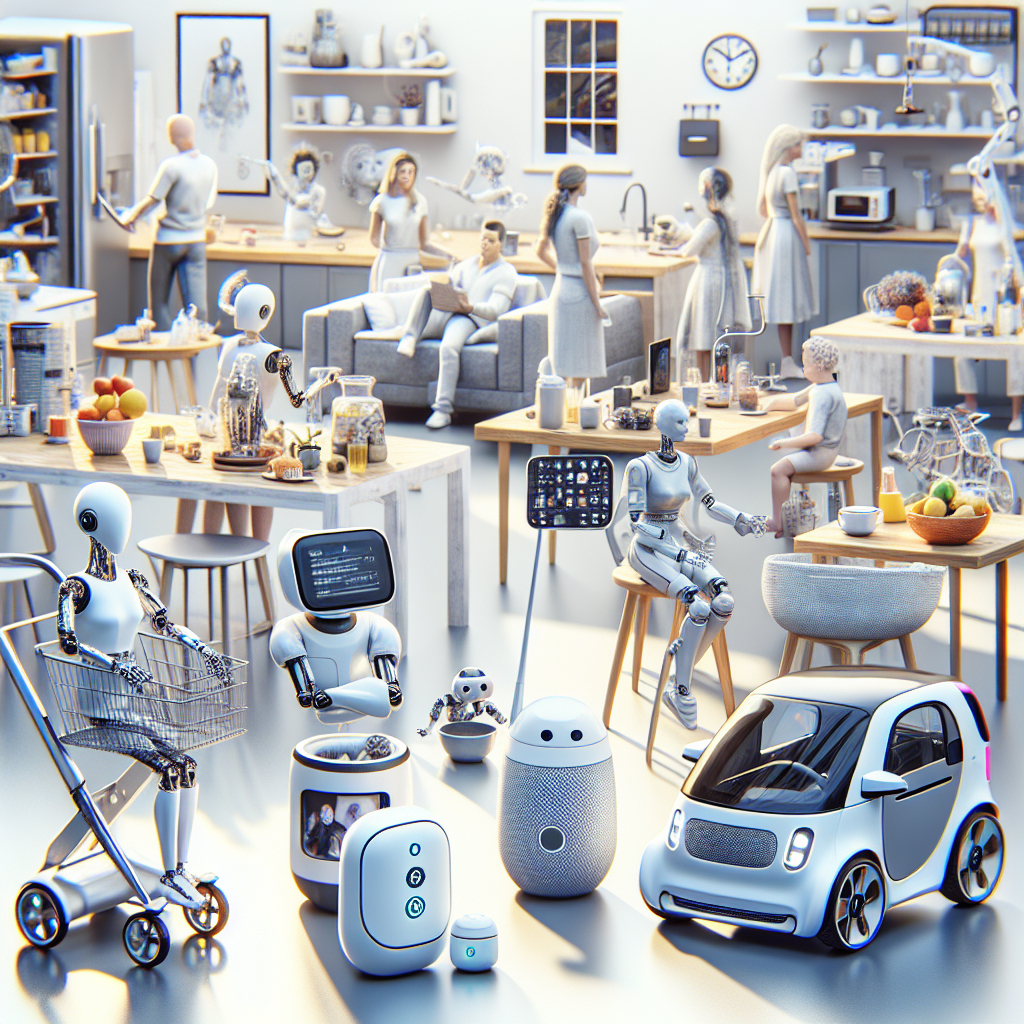Artificial Intelligence (AI) and automation have become integral parts of our daily lives, influencing various aspects from how we work to how we interact with the world around us. This article delves into the multifaceted roles that AI and automation play in our everyday existence, exploring their benefits, challenges, and future potential.
AI and Automation in the Workplace
The workplace is one of the most significant areas where AI and automation have made a substantial impact. From streamlining routine tasks to enhancing decision-making processes, these technologies are revolutionizing how businesses operate.
Efficiency and Productivity
One of the primary benefits of AI and automation in the workplace is the increase in efficiency and productivity. Automated systems can handle repetitive tasks such as data entry, scheduling, and customer service inquiries, freeing up human employees to focus on more complex and creative tasks. For instance, chatbots powered by AI can manage customer service interactions, providing quick and accurate responses to common queries.
Moreover, AI algorithms can analyze vast amounts of data at unprecedented speeds, offering insights that can drive strategic decisions. This capability is particularly valuable in industries such as finance, healthcare, and marketing, where data-driven decisions are crucial.
Job Transformation
While there are concerns about AI and automation leading to job displacement, it’s essential to recognize that these technologies also create new opportunities. Many roles are being transformed rather than eliminated. For example, in manufacturing, robots handle repetitive assembly line tasks, allowing human workers to take on supervisory and maintenance roles.
Additionally, the rise of AI has led to the creation of entirely new job categories, such as AI specialists, data scientists, and automation engineers. These roles require a different skill set, emphasizing the need for continuous learning and adaptation in the workforce.
AI and Automation in Daily Life
Beyond the workplace, AI and automation are increasingly becoming part of our everyday lives, influencing how we interact with technology, manage our homes, and even how we travel.
Smart Homes
Smart home technology is one of the most visible examples of AI and automation in daily life. Devices such as smart thermostats, lighting systems, and security cameras use AI to learn user preferences and optimize their performance. For instance, a smart thermostat can learn your schedule and adjust the temperature accordingly, leading to energy savings and increased comfort.
Voice-activated assistants like Amazon’s Alexa and Google Assistant are also becoming household staples. These devices use natural language processing (NLP) to understand and respond to user commands, allowing for hands-free control of various home functions, from playing music to setting reminders.
Healthcare and Personal Well-being
AI and automation are making significant strides in healthcare, improving patient outcomes and making medical services more accessible. Wearable devices such as fitness trackers and smartwatches monitor vital signs and physical activity, providing real-time health data to users and healthcare providers. This continuous monitoring can lead to early detection of potential health issues and more personalized care plans.
Telemedicine platforms, powered by AI, are also transforming healthcare delivery. These platforms enable remote consultations, making it easier for patients to access medical advice without the need for physical visits. AI algorithms can assist doctors by analyzing medical images, predicting disease progression, and suggesting treatment options.
Challenges and Ethical Considerations
While the benefits of AI and automation are numerous, they also present several challenges and ethical considerations that need to be addressed.
Privacy and Security
One of the primary concerns with AI and automation is the issue of privacy and security. The vast amounts of data collected by AI systems can be vulnerable to breaches and misuse. Ensuring that this data is protected and used ethically is crucial. Regulations such as the General Data Protection Regulation (GDPR) in Europe aim to safeguard user data, but ongoing vigilance is necessary.
Bias and Fairness
AI systems are only as good as the data they are trained on. If the training data contains biases, the AI can perpetuate and even amplify these biases. This issue is particularly concerning in areas such as hiring, law enforcement, and lending, where biased AI systems can lead to unfair treatment of individuals. Efforts to create more transparent and fair AI systems are ongoing, but this remains a significant challenge.
The Future of AI and Automation
Looking ahead, the role of AI and automation in everyday life is set to expand even further. Emerging technologies such as autonomous vehicles, advanced robotics, and AI-driven personalized education hold the promise of transforming various aspects of our lives.
Autonomous Vehicles
Autonomous vehicles, powered by AI, have the potential to revolutionize transportation. These vehicles can reduce traffic accidents, optimize traffic flow, and provide mobility solutions for those unable to drive. While fully autonomous cars are not yet commonplace, advancements in this field are progressing rapidly.
Personalized Education
AI-driven personalized education platforms can tailor learning experiences to individual students’ needs, strengths, and weaknesses. These platforms can provide real-time feedback, adapt to different learning styles, and offer customized resources, making education more effective and accessible.
In conclusion, AI and automation are playing an increasingly significant role in our everyday lives, offering numerous benefits while also presenting challenges that need to be addressed. As these technologies continue to evolve, their impact on various aspects of life will only grow, making it essential for society to navigate this transformation thoughtfully and ethically.



